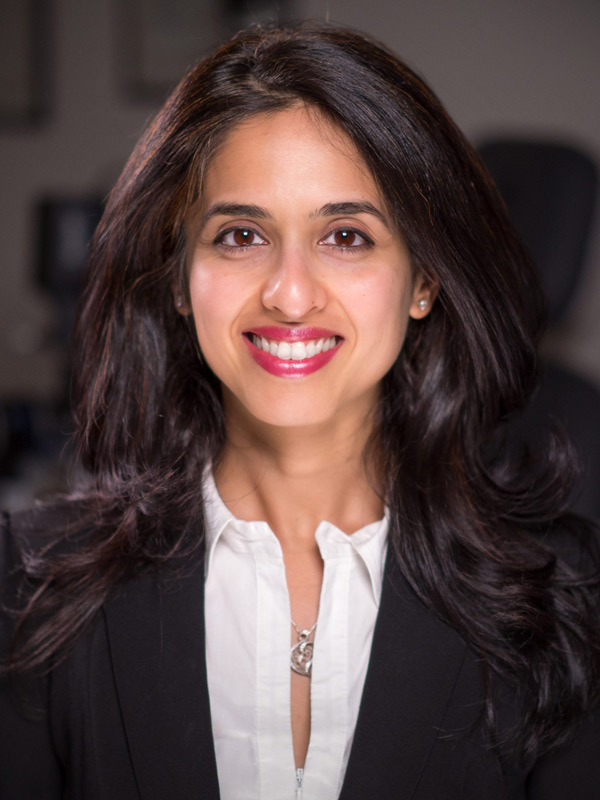
How long will my vision be blurry after LASIK?
If you’re considering LASIK eye surgery, uncertainty about how long to expect residual blurriness post-surgery can be concerning, especially if you’re unsure what to expect during recovery. If you’re considering LASIK in Adelaide, consider contacting us at IVISION LASER to arrange a consultation to determine the suitability of this procedure for you.
Every patient heals at a different pace, and several factors influence how long vision remains blurry after LASIK. If you’re looking for more information about pain during LASIK, take a look at our article Laser Eye Surgery Pain. In this article, we’ll explore the typical recovery timeline, reasons why some people experience prolonged blurriness, and when it might be necessary to consult your surgeon.
What to expect in the first few days after LASIK
Blurry vision is completely normal in the hours and days following LASIK. The procedure involves reshaping the cornea, and it takes time for the eye to heal and adjust to its new shape.
- First 24–48 hours: Most patients experience some degree of blurriness, haziness, or light sensitivity and vision clarity may fluctuate during this time1Rachael Zimlich, RN, BSN (2021) Femto LASIK: What to Expect, Recovery, and More. healthline.com. https://www.healthline.com/health/eye-health/femto-lasik
- First week: Vision clarity improves significantly2Walker and Wilson (2001) Recovery of uncorrected visual acuity after laser in situ keratomileusis or photorefractive keratectomy for low myopia. Cornea. https://pubmed.ncbi.nlm.nih.gov/11248818/ , but some patients may still notice mild blurriness, especially in low light or while using screens
- By the end of the first month: Most people achieve stable vision, though minor fluctuations can still occur3Smadja et al. (2023) Early Impact of Laser Vision Correction (LVC) on the Stability and Quality of the Retinal Image. Journal of clinical medicine. https://pubmed.ncbi.nlm.nih.gov/36902566/ .
During this time, it’s important to rest your eyes, avoid rubbing them, and follow all post-operative care instructions provided by your surgeon.
How long can blurriness last after LASIK?
While many patients achieve clear vision within a few days, some experience blurriness for longer. Factors such as corneal healing, pre-existing prescription strength, and individual healing responses can all affect the timeline.
For most people, vision continues to stabilise over the following weeks, with the final outcome becoming clear within two to three months4Mayo Clinic (2024) LASIK eye surgery. Mayo Clinic. https://www.mayoclinic.org/tests-procedures/lasik-eye-surgery/about/pac-20384774 . However, patients with higher prescriptions or significant astigmatism may experience more prolonged vision fluctuations as the eye adapts to the new corneal shape and optics. It’s important for patients to have realistic expectations and understand that stability may take longer to achieve in these cases.
If your vision remains blurry beyond three months, it’s essential to attend your follow-up appointments to assess whether additional treatment or a LASIK enhancement may be required.
Why is my vision still blurry weeks or months after LASIK?
While most patients achieve sharp vision within a few weeks, some experience prolonged blurriness. Here’s a breakdown of common concerns:
- Dry eye syndrome is a frequent cause of blurriness post surgery, as LASIK can temporarily reduce tear production. In most cases, this resolves after a month5Toda (2018) Dry Eye After LASIK. Investigative ophthalmology & visual science. https://pubmed.ncbi.nlm.nih.gov/30481814/
- If one eye remains blurry while the other is clear, there may be differences in healing between the two eyes. If this persists, a follow-up with your surgeon is recommended
- Vision changes years after LASIK are usually due to natural eye changes rather than the surgery itself. Presbyopia (age-related near vision loss) or mild regression of the original correction may be responsible6The Healthline Editorial Team (2019) LASIK: How Long Does It Last?. healthline.com. https://www.healthline.com/health/eye-health/how-long-does-lasik-last .
Can you still have bad eyesight after LASIK?
While LASIK significantly reduces dependence on glasses or contact lenses, some patients may still experience vision imperfections after the procedure. Reasons for this include:
- Residual refractive error: In some cases, LASIK may not fully correct high prescriptions, leaving minor blurriness that can be improved with an enhancement procedure7Moshirfar et al. (2022) Laser-Assisted In Situ Keratomileusis (LASIK) Enhancement for Residual Refractive Error after Primary LASIK. Journal of clinical medicine. https://pubmed.ncbi.nlm.nih.gov/36013070/
- Regression: In just under a quarter of cases, patients experience a gradual return of their original prescription, leading to a slight decline in vision clarity8Chen et al. (2007) An interval-censored model for predicting myopic regression after laser in situ keratomileusis. Investigative ophthalmology & visual science. https://pubmed.ncbi.nlm.nih.gov/17652718/
- Other eye conditions: If blurriness develops years after LASIK, it may be due to age-related changes such as presbyopia, which affects most people over 409The Healthline Editorial Team (2019) LASIK: How Long Does It Last?. healthline.com. https://www.healthline.com/health/eye-health/how-long-does-lasik-last .
If you experience persistent or worsening blurriness after LASIK, an eye examination can help determine the cause and potential treatment options.
Post-LASIK recovery tips to improve vision clarity
Proper aftercare plays a crucial role in achieving the best possible vision after LASIK. Following these guidelines can help improve your recovery experience:
Use lubricating eye drops – Dryness is a common cause of blurry vision. Using prescribed artificial tears is recommended to keep your eyes comfortable and aid healing by addressing post-operative dry eye symptoms and supporting ocular surface health10Moshirfar et al. (2023)Laser In Situ Keratomileusis (LASIK). StatPearls Publishing. https://www.ncbi.nlm.nih.gov/books/n/statpearls/article-35813/ .
Limit screen time – Many patients ask, “How many days after LASIK can I use my phone?” Dry eyes, glare, and light sensitivity are common after LASIK11Mayo Clinic (2024) LASIK eye surgery. Mayo Clinic. https://www.mayoclinic.org/tests-procedures/lasik-eye-surgery/about/pac-20384774 , so minimising screen exposure for the first few days may be beneficial. Always follow your doctor’s post recovery instructions.
Follow post-operative care instructions – Attend all follow-up appointments, use prescribed medications as directed, and protect your eyes from irritants like dust and wind.
Be patient with healing – Vision improvements happen gradually, so allow time for your eyes to adjust.
When to see your surgeon about blurry vision
Blurry vision after LASIK is usually part of the normal healing process, but there are times when it’s important to seek medical advice.
If you experience persistent blurriness beyond three to six months, or if vision worsens over time, schedule a consultation with your ophthalmologist. Additionally, sudden changes in vision or severe discomfort should always be assessed as soon as possible, as these symptoms could indicate complications such as infection, flap problems, or other serious issues12Mayo Clinic (2024) LASIK eye surgery. Mayo Clinic. https://www.mayoclinic.org/tests-procedures/lasik-eye-surgery/about/pac-20384774 .
Final thoughts – What to expect from your LASIK recovery
Most people achieve clear vision within the first few weeks after LASIK, though minor fluctuations are normal during the healing process. While some individuals may experience temporary blurriness for a few months, up to 90% of patients have been reported to continue enjoying improved vision 7 years post-procedure13Liu et al. (2008) Seven-year follow-up of LASIK for moderate to severe myopia. Journal of refractive surgery (Thorofare, N.J. : 1995). https://pubmed.ncbi.nlm.nih.gov/19044235/. However, it’s important to note that some degree of regression can occur over time, and individual results may vary.
If your vision remains blurry beyond the expected recovery period, attending a follow-up appointment can help determine whether further treatment is needed. The best way to ensure a successful outcome is to follow your surgeon’s advice, maintain proper eye care, and give your eyes the time they need to heal.
For those considering LASIK, an initial consultation with an experienced ophthalmologist can provide personalised guidance on what to expect before, during, and after the procedure. If you’re in the Adelaide area, you can contact us at IVISION LASER to arrange a consultation to assess the suitability of this procedure for you.
Find out if you are suitable for vision correction
Not everyone is eligible for vision correction surgery.
Find out if you could benefit from this life changing surgery by taking the quick self-suitability quiz below:
Our most popular procedures

Hi, I’m Dr Aanchal Gupta, your laser and cataract surgeon in Adelaide
Over the past 10 years, I’ve had the joy of helping thousands of patients of all ages gain clear vision and freedom from glasses and contact lenses.
Laser eye surgery is a skill. Performing vision correction at a world-class standard hinges upon the expertise of your surgeon and their access to state-of-the-art tools.
I understand that getting eye surgery is a serious decision. Your eyes are unique and you should demand a custom solution tailored to your needs, lifestyle and goals. That’s why we offer a free appointment so we can meet and I can take the time to answer your questions and talk through any concerns you have.
I am passionate about helping patients transform their lives. I look forward to spending time with you at our gorgeous eye clinic in the heart of Adelaide to see whether you could gain exceptional vision without the need for glasses or contacts.
Dr Aanchal Gupta
MBBS, M.Med. (Ophth. Sci.), Grad. Dip. (Refract. Surg.), FRANZCO
Expert Laser Eye and Cataract Surgeon
